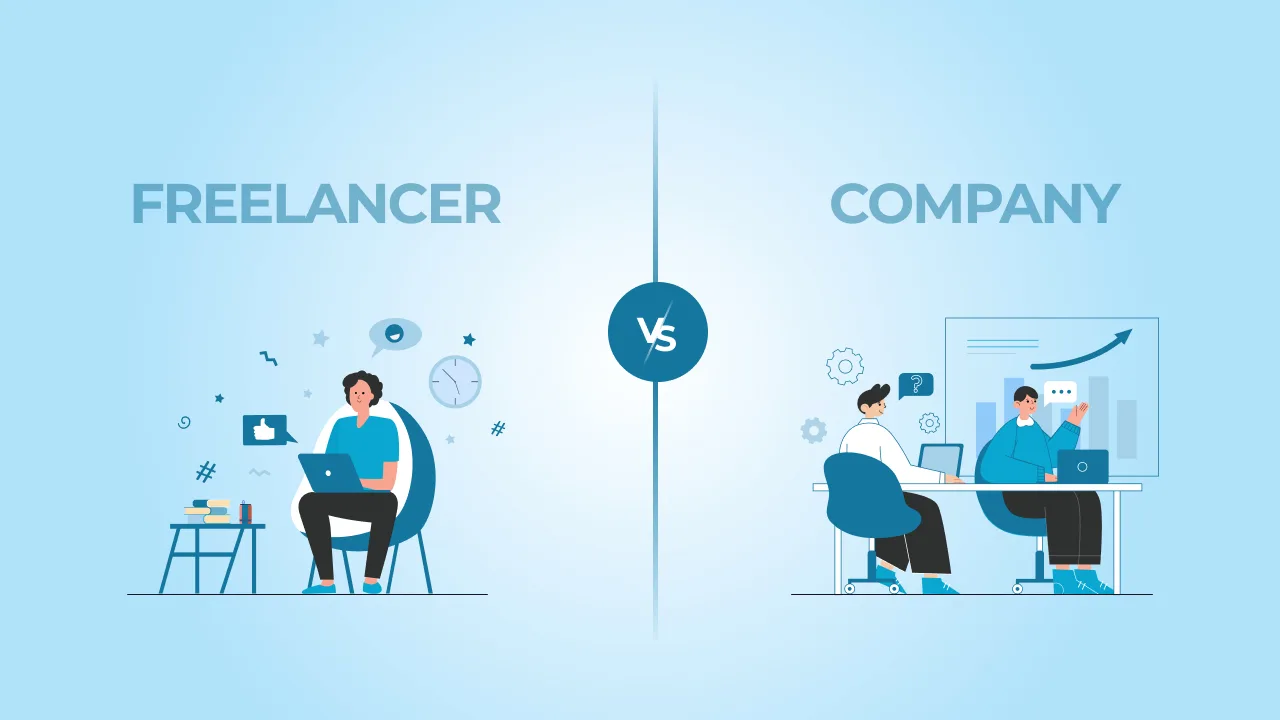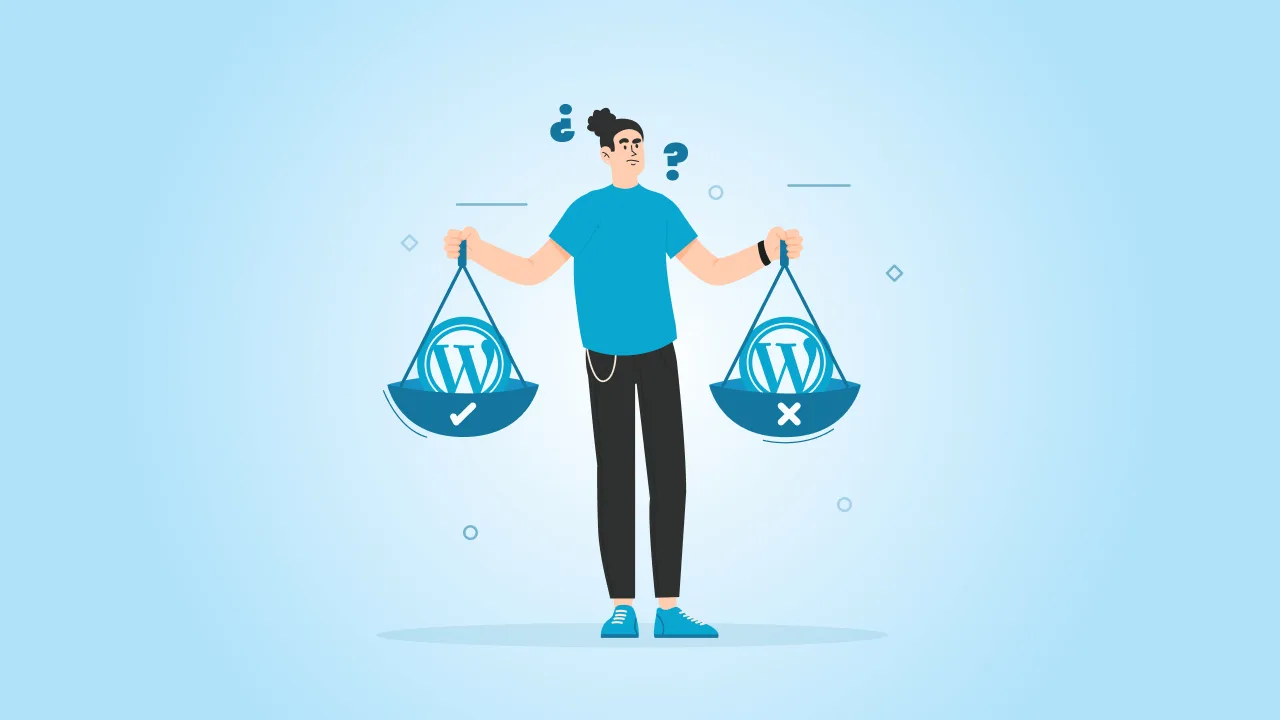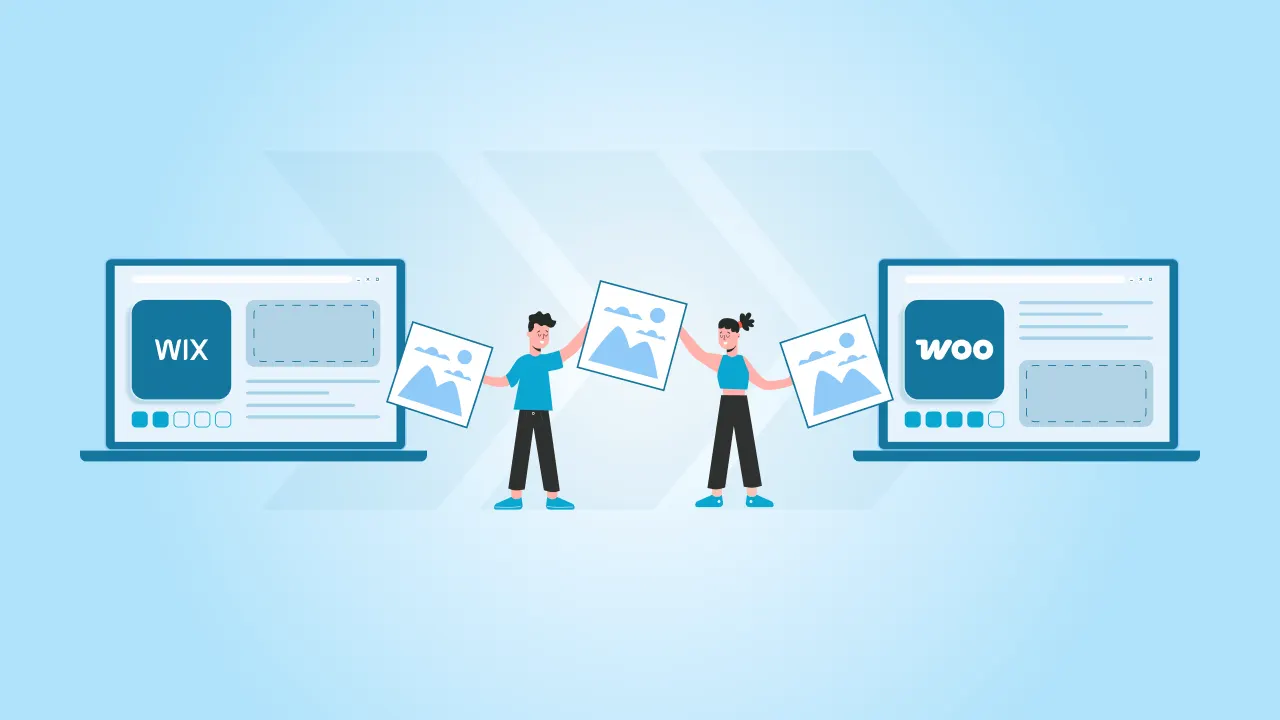No doubt WordPress is a giant, powering a whopping 43.3% of the web all by itself. But what if you’re looking for an alternative content management system (CMS) that offers a different feature set?
For that, TYPO3 is in the market that offers a powerful and feature-rich CMS that caters to a specific set of needs. Less familiar, perhaps, but with a loyal following and unique strengths.
Below, we’ve curated an in-depth comparison between TYPO3 vs WordPress in which we will be touching technical aspects, pros, cons and key differentiators that will help you decide which CMS is the perfect fit for you!
What is TYPO3?
Unlike WordPress, TYPO3 isn’t a household name. TYPO3 caters to a different kind of website beast: the large and complex. Launched in 1998, this CMS packs a punch when it comes to managing multilingual websites. Its secret weapon? A modular architecture that allows for mind-blowing customization.
Enterprises love TYPO3 for its bank-vault-like security, feature-rich environment, and a supportive community of developers. If you’re an organization seeking a CMS that can grow with your needs and conquer complexity, TYPO3 might just be your perfect match.
Advantages and Disadvantages of TYPO3

TYPO3, like any other content management system (CMS), isn’t a one-size-fits-all solution. It boasts some impressive strengths, but it’s not without its quirks.
Advantages
- Scalability and Flexibility: TYPO3 is scalable so that it can handle just about any site, from a small business website up to a large enterprise portal. The architecture is modular, so additions and adjustments of features are as the needs arise.
- Multilingual Support: TYPO3 provides strong multilingual support. It features very good functionalities and tools for the translation and localization of content, making it an ideal choice for global business.
- Customizability: TYPO3 is highly customizable. With a large collection of extensions and the possibility of developing custom modules, developers can do anything to adjust the CMS to many diverse business needs.
- Security: TYPO3 has rigid security; through constant updates and the regular publishing of security patches, it assures a secured online existence.
- Very active Community and Great Support: Typo3 has an active community of developers and users that ensure continuous improvement, extensive documentation, and strong support channels.
Disadvantages
- Steep Learning Curve: TYPO3 may be hard to learn, especially for beginners. It is feature-rich and flexible, which will translate into a good deal of time investment to learn the system properly.
- Resource-Intensive: Advanced features in TYPO3 require far more server resources compared to other CMS platforms. It may require higher hosting costs and more powerful server configurations.
- Implementation and Maintenance: A bit complex can be the setup and maintaining of a TYPO3 website compared to some CMSs. This typically calls for more experienced developers who will take care of the configuration, customization, and maintenance processes.
- Fewer Extensions: Even though TYPO3 has a rich set of available extensions compared to other leading CMS platforms like WordPress, it might lag just a little bit in the availability of ready-made plugins. Oftentimes, specific functionalities require more custom development.
- Community Size: Though TYPO3 has a very active community, the number is really small compared to giants like WordPress. This sometimes means having less readily available resources when you need them—say, tutorials, or third-party integrations.
In essence, the flexibility and strength of the CMS makes TYPO3 well suited for the better part of multilingual, large, and complex websites.
This can be a bit of a challenge for most beginners due to its steep learning curve, resource intensity, and general complexity.
Hence, it offers tradeoffs with these factors when considering it for your web development needs.
What is WordPress?
WordPress is arguably the most popular user-friendly content management system, with 43.3% of websites globally powered by it.
Created in 2003, it was made as a blogging system but developed into a universal content management system with wide use for all kinds of web projects.
Well-known for its user-friendly features, rich plugins, and themes, WordPress is an excellent system for flexible, SEO-friendly, and supported solutions in building or managing websites.
Advantages and Disadvantages of WordPress

WordPress is the king of content management systems (CMS) without a doubt. It powers an astonishing percentage of the web. Of course, with any popular system, there’s a sunny side and a shadow side.
Advantages
- User-Friendly: The interface of WordPress is user-friendly, bringing comfort for the new generation even though they are non-techies, in creating and managing a website. User-friendliness in making websites is almost similar to your friendly neighborhood barista, who knows your order by heart.
- Endless Possibilities: There are thousands of themes and plugins through which you can customize your WordPress site. It’s like a Lego set for your website, basically.
- Thriving Community: WordPress has a massive community of users and skilled WordPress developers. Stuck on something? Chances are that someone has already asked — and answered — the same question in the forums.
- SEO-Friendly: WordPress is search engine optimization (SEO)-friendly by design. It’s as though your website has a GPS coded into it to ensure it can be found on Google.
- Affordability: WordPress itself is free, and there are loads of free themes and plugins available. It’s like a potluck dinner where everybody brings a dish—so you can feast without going bust.
Disadvantages
- Security Issues: Popularity breeds its own set of challenges. WordPress is a prime target for cybercriminals, so you will need to take security measures. It’s the same as living in a big city; you will have to lock your doors.
- Plugin Overload: Plugins are excellent in adding features. However, these could slow your site down, especially if you have way too many of them. That’s like loading way too many apps onto your phone—it just really starts to lag.
- Updates Galore: WordPress updates are frequent, which is great for security and adding new features, but it can sometimes break things. Basically, that’s like renovating your house; there’s always a chance that something will not go as planned.
- Limited Customization: As much as themes and plugins are flexible, there is always a point where the rubber meets the road; a point where your wants are too specific to be gratified by the general features. It is just like ordering a pizza with a specific combination of toppings—sometimes you can’t get exactly what you want.
TYPO3 vs WordPress: A Side-by-side Comparison
Choosing between TYPO3 and WordPress is like picking between a Swiss Army knife and a trusty Leatherman – both are versatile tools, but each has its own strengths and specialties. Let’s break down the key differences to help you decide which one is the right fit for you.
Here’s a side-by-side Thinkific vs WordPress features to compare.
| Feature | TYPO3 | WordPress |
|---|---|---|
| Ease of Use | Difficult to use; high level of required technical expertise. Not meant for novices. | Easy to use, user-friendly interface. Perfect for beginners and non-technical users. |
| Design Capabilities | Highly customizable with lots of templates and extensions. Offers greater flexibility for complex designs. | Large library of themes and plugins. Easy design, but complexity may need to develop a bit. |
| Custom domains | Thinkific comes with a custom domain. | You need to connect your custom domain to the WordPress.com website. |
| Website Security | Robust security features, regularly updated. Popular choice for government and enterprise websites. | Requires additional security measures and plugins. Frequent updates are essential for maintaining security. |
| 3rd-Party Integration | High. A huge variety of extensions to choose from, though sometimes they will need a bit of technical fiddling to be integrated. | Large plugin library allowing you to easily integrate with almost all third-party tools and services. |
| SEO Features | Built-in SEO features and add-ons available. | Good SEO foundation, but it’s needed to add some plugins for advanced optimization. |
| eCommerce | Will require additional extensions for the eCommerce features. | A lot of powerful plugins in the field of eCommerce, so filling your site with an online shop won’t be a problem. |
| Support & Resources | Smaller community, may be harder to find help. | Large community, very good documentation and forums for support. |
| Pricing | Free and open source. Costs only for development and hosting can go higher. | Free and open source, but costs can vary depending on the chosen themes, plugins, and hosting. |
TYPO3 vs WordPress: Which One You Should Choose?
The battle between TYPO3 and WordPress boils down to complexity versus ease of use but see:
- For Beginners & Simple Sites: WordPress reigns supreme. It’s user-friendly, has a vast plugin library, and boasts a massive community for support.
- For Complex & Multilingual Sites: TYPO3 shines. Its modular design allows for unmatched customization and security, making it ideal for large, intricate websites with multilingual needs.
So, consider your technical expertise and website needs. Do you crave user-friendliness and a vibrant community? Choose WordPress. Do you prioritize robust features, security, and multilingual support for a complex site? TYPO3 might be your perfect fit.





